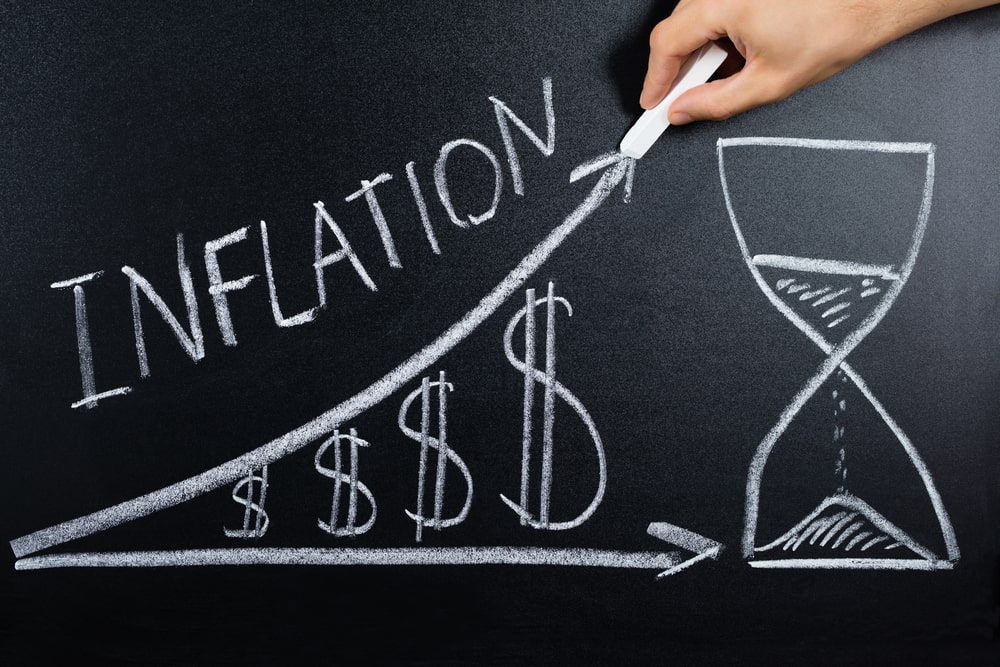HOW DOES INFLATION AFFECT REAL ESTATE?
Inflation is common in most economies. In fact, it is often seen as an early sign of the end of an economic cycle. Naturally, a sudden spike in inflation can have a seismic impact on a wide range of sectors and investment portfolios, and investors who fail to navigate it will invariably be wiped out. But how does real estate investing fare against inflation? What happens to real estate during inflation? And is inflation good for real estate? I will try to answer all those in this article below and give a case for why real estate assets are the ideal inflation protection.
What Is Inflation?
Inflation is a quantitative measure of the rate at which the average price level of a basket of selected goods and services in an economy increases over some period of time. It is the rise in the general level of prices where a unit of currency effectively buys less than it did in prior periods. Often expressed as a percentage, inflation thus indicates a decrease in the purchasing power of a nation’s currency.
How Does Inflation Affect the Real Estate Market?
Like I mentioned above, inflation really has a huge impact on a many sectors in any countries economy. The most affected by inflation are the energy. financial, and utility markets. But in stark contrast to these industries, real estate investors rarely feel the brunt of this impact. So how does real estate hedge against inflation? Below is an in-depth look at how the housing market reacts to rising prices and what makes a real estate investment such an inflation-proof asset.
1- Property values will increase
As you would expect, real estate prices will also increase when a high inflation rate hits the economy. The reasons for this are quite obvious and simple. Since the prices of construction materials will be high, developers will spend more when building new properties. This will lead to an inevitable increase in the price of new real estate properties. Moreover, existing properties will also rise in value due to the reduced supply of new constructions.
2- The cost of borrowing will be higher
Generally speaking, an economy that is experiencing rising prices is not conducive to getting favorable loan terms. In fact, the cost of borrowing tends to be quite high in these situations. The fact that inflation devalues the currency forces most lenders to raise interest rates. This is usually done in an effort to cover the losses that are engendered by the decrease in currency value. It is also worth noting that this higher cost of borrowing affects both buyers and real estate developers. As a matter of fact, most construction companies rely on loans to tackle their projects and an increase in interest rates will invariably result in higher property prices.
3- Rental rates will soar

The increase in rental rates is one of the most noticeable effects of inflation. Due to the high cost that comes with mortgages, most people will opt to rent rather than buy. The high demand for rental properties and the influx of tenants will prompt landlords to raise their rental rates. Needless to say, owning a rental property in this economic climate places you in an ideal position as tenants are more willing to pay higher rents than take on an unmanageable mortgage.
Housing Is a Good Asset During Inflation
Housing is generally viewed as a great asset when it comes to inflation, in part because it will rise with the inflation rate and in part because it is a leveraged asset. When you buy real estate, you make a down payment of perhaps 20 to 30 percent of the house price. The house price rises by the rate of inflation times the cost of the house, not by the cost of your down payment. So if inflation doubled the value of the house, it may have quadrupled the value of your down payment. If you took out a fixed-rate mortgage, you have done even better because you are making a payment that dropped in inflation-adjusted dollars. You are paying less for the loan than you did when you took it out. Right now mortgage rates are going to help anyone out in the long run as they are low and also the bench mark rate is at a all time historic low at .25% and will continue to be until well into 2021 and some are saying 2023.
Supply and Demand Comes Into Play
Supply and demand influence prices. Even if inflation is high, an oversupply of housing will bring home prices down. Interest rates tend to go up with inflation. Mortgage rates reflect interest rates. If mortgage rates go up too high, people won’t take out home loans. Demand will decrease; home prices will fall.
The best place to put your money is in real estate as its like its protected on both sides of inflation and deflation and offers a great return on your investment.
Sourses:
https://homeguides.sfgate.com

